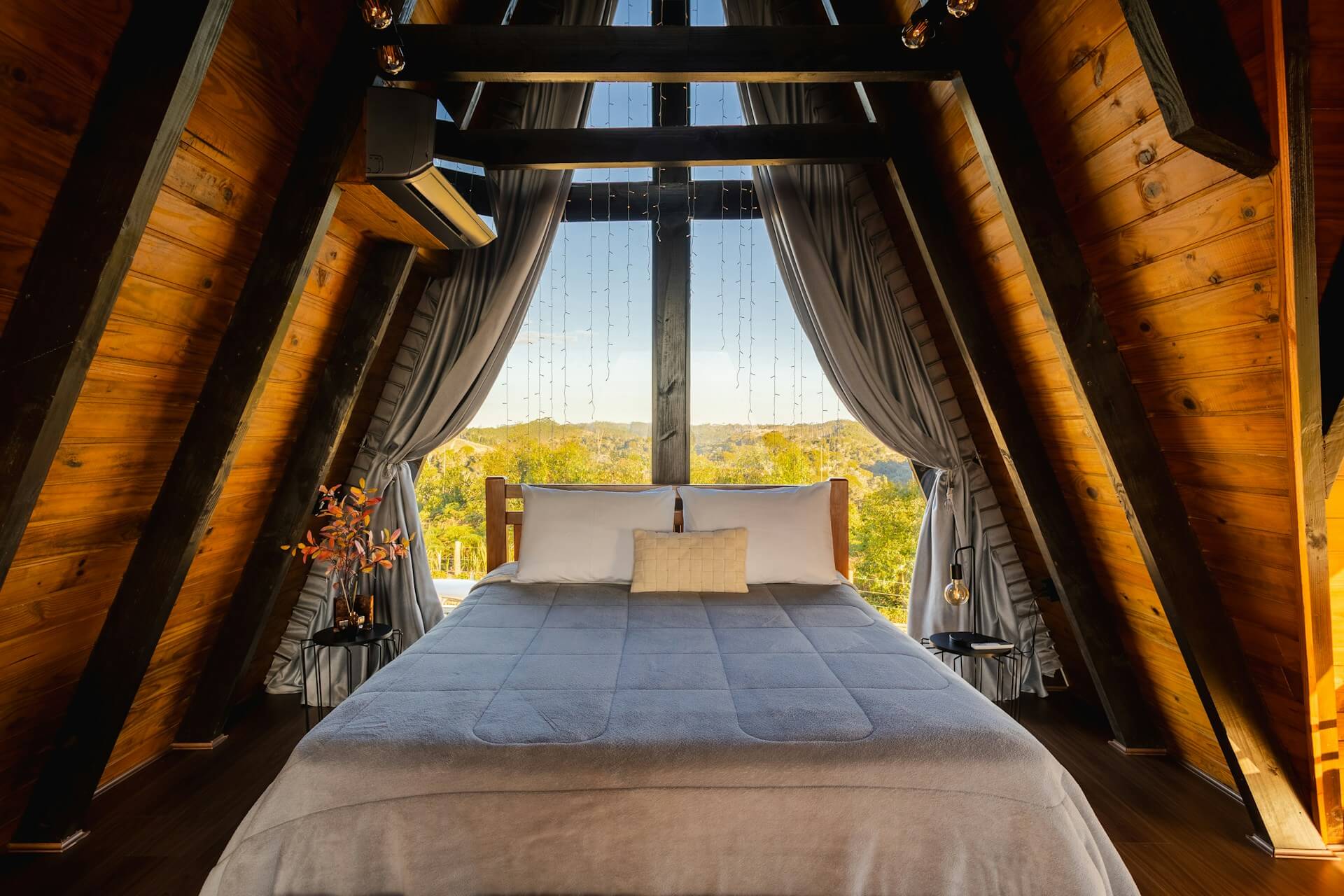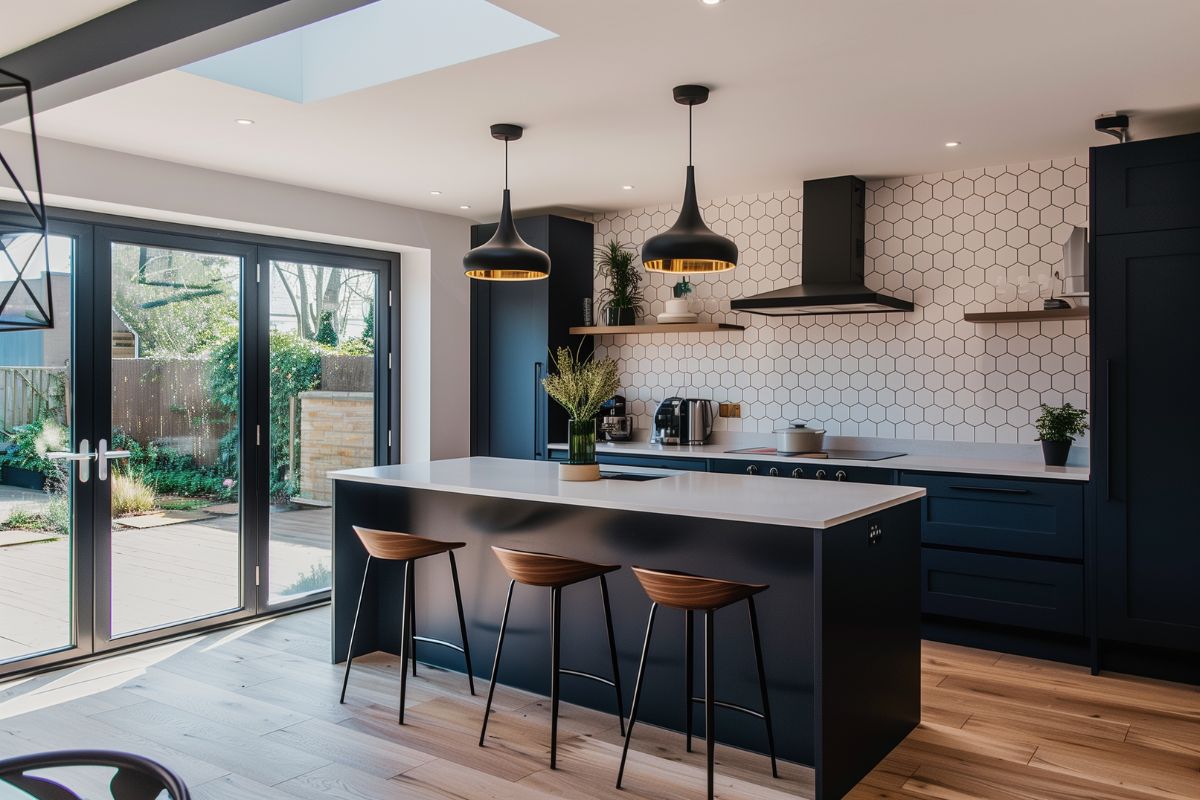
As the proposed changes to short-term rental regulations take shape, property investors are standing at a crossroads filled with both challenges and exciting new opportunities. Imagine a more controlled environment for Airbnb-style properties, where understanding and navigating these regulations becomes the key to unlocking your investment’s potential. We know you have aspirations for growth, stability, and success in this ever-evolving market, but we also understand the fears that come with change. Let’s explore what they mean for the future of short-term lets in the UK and, most importantly, how you can adapt to keep your property investments thriving, starting with how we’ve got here.
AIRBNB REGULATIONS: HOW WE GOT HERE
Over the past decade, there has been a significant shift in the residential property markets with the rise of sharing economy platforms such as Airbnb. What started as a brilliant idea to make holidaying more accessible became a problem, impacting how we think about property investment. For many, Airbnb offers a chance to make money from tourism without the huge costs of financing and running a hotel or guest house. Instead, people could buy a property, spruce it up, and welcome holidaymakers for short stays.
AIRBNB PROPERTIES’ EXPLOSIVE GROWTH
As the Airbnb scheme became more popular, problems began to surface. The result was an exponential growth in the number of “UK hosts” and their short-term holiday rentals. Between 2014 and 2021, the number of Airbnb listings in the country had grown by 571%, reaching over 104 000 listings. The 3rd quarter of 2023 recorded close to 2.8 million stays for this type of short-term lets —almost 28.9 million guest nights booked through three major platforms (Airbnb, Booking.com and Expedia).
Tourists and travellers would choose short-term holiday rentals over traditional hotel stays, attracted by their cost-effectiveness and homely comforts. Demand was far greater than expected for this type of holiday accommodation, and quickly, these ‘short-term lets’ started looking like a great investment opportunity.
However, what was once a mutually beneficial arrangement for homeowners and travellers started to show its darker side. The ‘ease’ of finding long-term rentals was severely reduced, replaced by a surge in noise complaints, increased foot traffic, and a noticeable shift in the residential atmosphere of neighbourhoods. These issues strained the relationships between holiday-let owners and their long-standing resident neighbours, leading to a tense environment.
EFFECT ON LOCAL HOUSING MARKETS
It’s not just ambience. Demand for property from residents and investors has steeply accelerated house prices and rising living costs in too many communities. Residential properties, particularly in popular tourist destinations, are being converted en masse into short-term holiday lets, and that has seen many residents pushed out of their local communities.
This trend doesn’t just affect home buyers. Traditional renters are also struggling to find long-term accommodation, particularly at affordable prices. Ultimately, this particular shift towards short-term accommodation is changing the character of the neighbourhoods. Towns and cities that once thrived as vibrant communities could be at risk of transforming solely into transient hubs for tourists.
A recent analysis (quoted in The growth in short-term lettings in England) showed that about 10% of landlords have considered switching their long-term rental homes over to short-term rentals. If just the ones who are really serious about it go ahead with the change, this could render between 80 000 and 230 000 properties unavailable for long-term tenants.
In this domino effect, local businesses, too, try to adapt to cater to tourists’ needs, further distancing the communities from their original identity.
Local councils and policymakers have introduced new rules to maintain a balance in response to these issues. The upcoming regulations aim to preserve the benefits of short-term rentals while safeguarding the communities and the housing stock. Let’s now shift our focus to the current rules and what they mean for your property investments.
WHAT ARE THE LEGAL REQUIREMENTS FOR AIRBNB-PROPERTIES IN THE UK?
When clients ask us, “Is planning permission required for Airbnb?” the answer is yes.
Until now, there hasn’t been a specific change of use planning permission required for short-term lets (like those listed on Airbnb). Yet, you’d need to apply for planning permission if your property undergoes a material change of use from a residential dwelling to a holiday let. Local authorities have increasingly scrutinised these changes to manage the impact on housing markets.
Some local planning authorities have already reacted to the growth in holiday lets, leveraging powers given to them under the Deregulation Act of 2015. Greater London was among the earlier adopters, restricting the use of residential premises for short-term rental to 90 nights or fewer per calendar year. It’s always wise to consult the local authority to understand the specific rules that apply to your property.
UPDATE TO REGULATE SHORT-TERM LETS
In response to the growth in the number of short-term lets distorting the housing market and driving up prices, the UK Government proposed changes to regulations. In 2023, the Department for Levelling Up, Housing and Communities ran a consultation concerning these holiday lets in England.
The consultation covered proposed changes to the following:
- Town and Country Planning (Use Classes Order) 1987
- Town and Country Planning (General Permitted Development) (England) Order 2015
- Town and Country Planning (Fees for Applications, Deemed Applications, Requests and Site Visits) (England) Regulations 2012
WHAT’S THE NEW AIRBNB REGULATION?
The approved change to the short-term lets rules (confirmed in February 2024), particularly for properties listed on platforms like Airbnb, is significant for property investors. The new regulation, commonly referred to as “the Airbnb regulation”, aims to balance the benefits of tourism with the need for residential housing for local communities.
There are several measures to be implemented for short-term lets, including:
1. PLANNING PERMISSION REQUIREMENT
Currently, many short-term lets operate under the same ‘C3 Dwellinghouses’ use class as traditional homes, while others are categorised as HMO (house in multiple occupation) under the C4 and Sui Generis use classes.
With the new regulation, property owners who wish to rent out their homes for short-term stays will need to obtain planning permission if they intend to do so for more than 90 nights per year. This rule will give local authorities more control over the number of short-term lets in their area.
2. A NEW USE CLASS FOR ‘AIRBNB’
The proposed planning changes will introduce a new Use Class for short-term lets, including Airbnb-type properties. The awaited ‘C5’ Use Class will define the use of a dwelling for temporary accommodation for holidays, leisure, recreation, business, and other travel purposes.
The good news for Airbnb property owners is that the existing short-term lets will seamlessly transition into the new use class without any hassle with the planning application.
3. MANDATORY NATIONAL REGISTER
The government confirmed the introduction of a mandatory national register for short-term rentals. This register will provide local authorities with the necessary data to assess, manage, and regulate the impact of these rentals. Moreover, the measure will help ensure that accommodations are safe and meet housing standards while preserving community integrity.
4. PERMITTED DEVELOPMENT RIGHTS
The government also plans to introduce new permitted development rights specifically for converting properties classified as short-term lets.
This initiative will streamline the process for property owners to change the use of their property from a traditional dwellinghouse to a short-term let without having to apply for planning permission. Similarly to the effects of Article 4 Direction, local authorities will retain the ability to revoke these permissions and require full planning permission when they deem it necessary.
Under this proposal, permitted development rights would allow property owners to change the use of their property from a short-term let back to a dwellinghouse without needing to apply for planning permission. This scheme would facilitate the process and help increase the number of homes for sale or rent in areas where there are many short-term lets.
5. EXEMPTIONS AND FLEXIBILITIES
Homeowners will continue to enjoy the flexibility of letting out their homes for up to 90 nights per year under use class C3 (dwelling houses) and without the need for planning permission. This rule would support homeowners who wish to rent out their primary residency occasionally, providing additional income opportunities while ensuring that the long-term rental market remains unaffected.
This exemption would seek to apply the register without unfairly burdening property owners who rent out their homes only occasionally.
6. PLANNING APPLICATION FEE FOR AIRBNB (AND SHORT-TERM LETS)
While it was part of the consultation, the planning application fee hasn’t been confirmed. If implemented, this amendment would introduce a new cost for planning applications for the development of new short-term lets.
Stay tuned for more information. The Government will share further details about these measures, such as when the register will be implemented, how the use class will be defined, and the specific permitted development rights. It’s all expected to kick off this summer.

HOW TO ADAPT TO THE NEW SHORT-TERM RENTAL REGULATIONS?
With the coming changes to short-term rental regulations, property investors are facing a new landscape. These regulations are designed to create a more controlled environment for holiday rentals like Airbnb-style properties, presenting challenges and opportunities for the market.
As mentioned, the proposed regulations will require investors to seek planning permission for properties intended for short-term lets. For some investors, this might seem like time and complexity added to the plans. While these changes aim to protect housing availability and affordability, they encourage investors to explore alternative avenues.
This is where the HMO model (House in Multiple Occupation) becomes an attractive option. HMOs, renting out individual rooms in a property to multiple tenants, can offer a stable and consistent rental income. Unlike short-term lets, HMOs typically cater to long-term tenants, which can help mitigate the risks associated with fluctuating demand in the tourism sector.
What’s clear is that the demand for affordable, long-term rental housing remains strong in many areas. HMOs can provide much-needed housing solutions while opening the possibility of a steadier rental income. So, even with the regulatory framework, the many advantages of HMO rentals make this strategy particularly appealing.
AIRBNB REGULATION MOST ASKED QUESTION: IS AIRBNB CONSIDERED COMMERCIAL USE IN THE UK?
Yes. What you make through an Airbnb is considered income if you own the property personally. Profits on rental will also be taxable if you own the property through a limited company.
WRAPPING UP WITH NEW SHORT-TERM REGULATIONS (AND OPPORTUNITIES)
What can we take away from this? I want to summarise it by outlining ten differences and similarities between standard short-term rentals (Airbnb-like properties) and HMOs:
|
Factor |
Short-Term Let |
HMO |
|
Target Market |
Tourists, vacationers, short-term stays |
Students, young professionals, long-term stays with individual tenancy agreements |
|
Rental Income |
Potentially higher income due to higher nightly rates, but with variable occupancy |
Lower nightly rates, but with more consistent occupancy and likely higher yearly income |
|
Management |
More hands-on management — cleaning, guest communication, guest turnover, etc. | Less hands-on management required —but still responsible for maintenance, repairs, and finding tenants |
|
Regulations |
New regulations require mandatory registration and potentially planning permission (depending on location and use) | HMO regulations exist, including safety standards, planning and licensing requirements |
|
Tax |
Standard property income tax applies |
Standard property income tax applies |
|
Seed Capital |
Potentially high initial investment for furniture, amenities, etc. |
Depending on tenant profile and strategy—Higher quality is likely to increase initial investment and potential for steadier premium rentals |
|
Risk |
Vacancy risk can be higher. Seasonal and competitive market with other hospitality businesses such as hotels, B&B and hostels | Lower vacancy risk but the potential for rent arrears. Competing on a levelling playfield with other HMOs and Co-living spaces |
|
Tenancy Agreements |
Short-term agreements with individual guests | Individual tenancy agreements with each occupant |
|
Wear and Tear |
Potentially higher wear and tear due to frequent guest turnover |
Potentially lower wear and tear due to longer tenancies |
In brief, while the proposed changes to short-term rental rules may pose new challenges for short-term rental property owners, they also highlight the benefits of a regulated property market and the potential of HMO investments. By diversifying your property portfolio to include short-term lets and HMOs, you can balance the cyclic nature of the short-term rental market with the reliability of long-term tenants, ensuring a resilient and profitable investment strategy.
Whether converting a church into an Airbnb space, developing an upmarket HMO or planning your new home, we’re here to help you. Get HMO Architects’ tailored support to turn your property vision into reality.
Reach out to discuss your property strategy or contact us for a free consultation with one of our architects. We look forward to hearing from you.
FAQs
DO I NEED PLANNING PERMISSION FOR AN AIRBNB IN MY GARDEN?
Yes, you may need planning permission to use an Airbnb in your garden, especially if it involves a new structure or changes to an existing one. Local council regulations vary, so it’s crucial to take the initiative and check with them to ensure compliance with all planning and zoning laws.
DO I NEED COUNCIL APPROVAL FOR AIRBNB IN THE UK?
Yes, in the UK, you often need council approval to operate an Airbnb, especially if your property requires a change of use to short-term letting. Local regulations vary, so it’s recommended you check with your local council to understand specific requirements and ensure compliance. Non-compliance could lead to legal issues, so it’s important to know the rules.
DO I NEED COUNCIL APPROVAL FOR AIRBNB IN SCOTTLAND?
Yes, in Scotland, you generally need planning permission to operate an Airbnb, mainly if the property is frequently used as a short-term let. Local authorities may have specific regulations, so checking with your local council for precise requirements and ensuring compliance with all applicable rules is essential.
DO I NEED PLANNING PERMISSION TO RUN AN AIRBNB IN MY OWN HOME?
If you rent rooms in your own home as an Airbnb occasionally, you might not need planning permission. However, if you plan to use your home for short-term lets frequently or rent out the entire property, some local authorities may require planning permission.
DO I NEED AN HMO LICENCE FOR AN AIRBNB?
An HMO licence may be required if your property is rented to three or more people from more than one household and sharing facilities like a kitchen or bathroom. However, Airbnb rentals may need an HMO licence if the property meets the criteria for an HMO. Always check with your local council to ensure compliance with specific regulations.
Giovanni is a highly accomplished architect hailing from Siena, Italy. With an impressive career spanning multiple countries, he has gained extensive experience as a Lead Architect at Foster + Partners, where he worked on a number of iconic Apple stores, including the prestigious Champs-Élysées flagship Apple store in Paris. As the co-founder and principal architect of WindsorPatania Architects, Giovanni has leveraged his extensive experience to spearhead a range of innovative projects.




